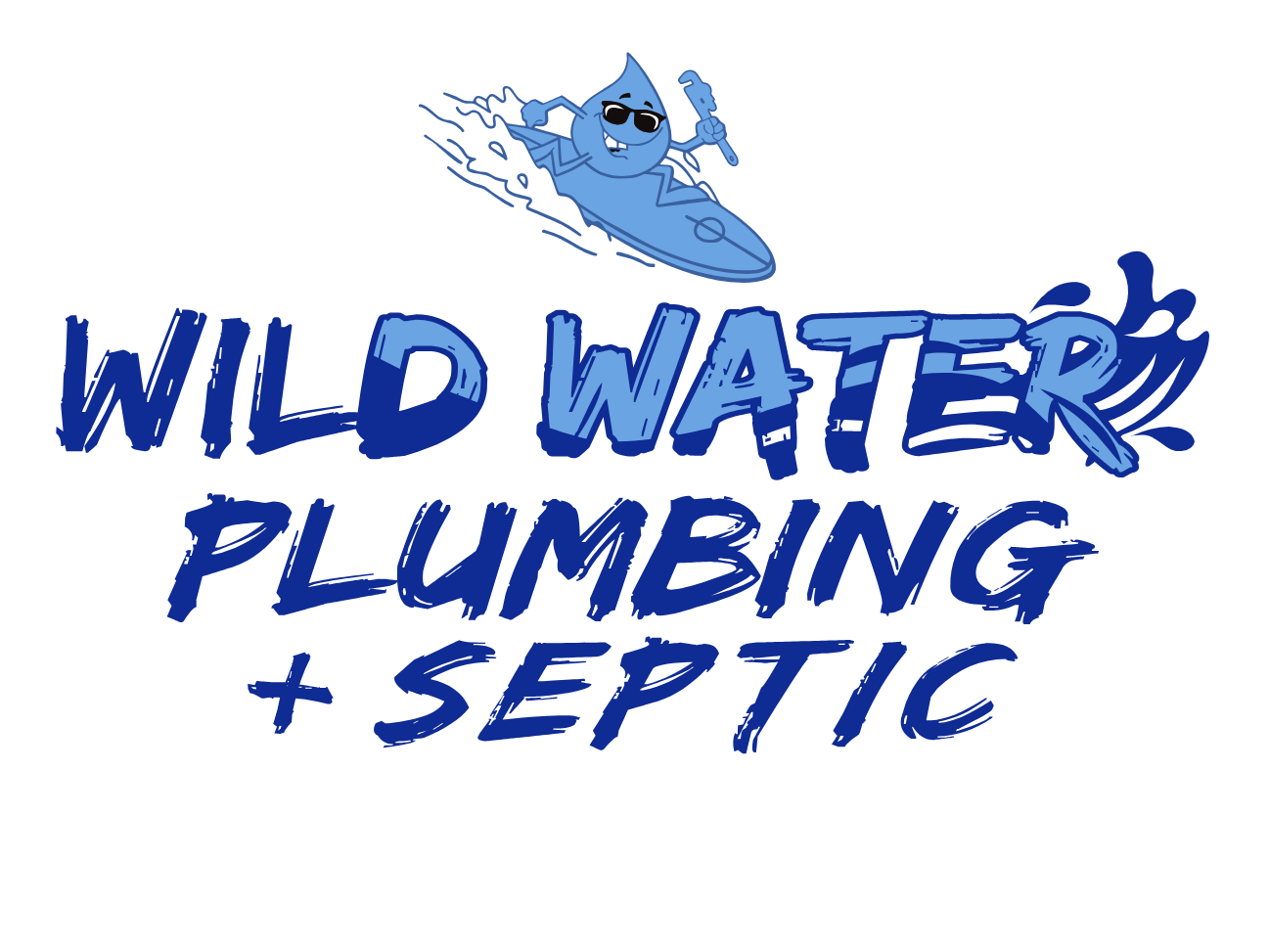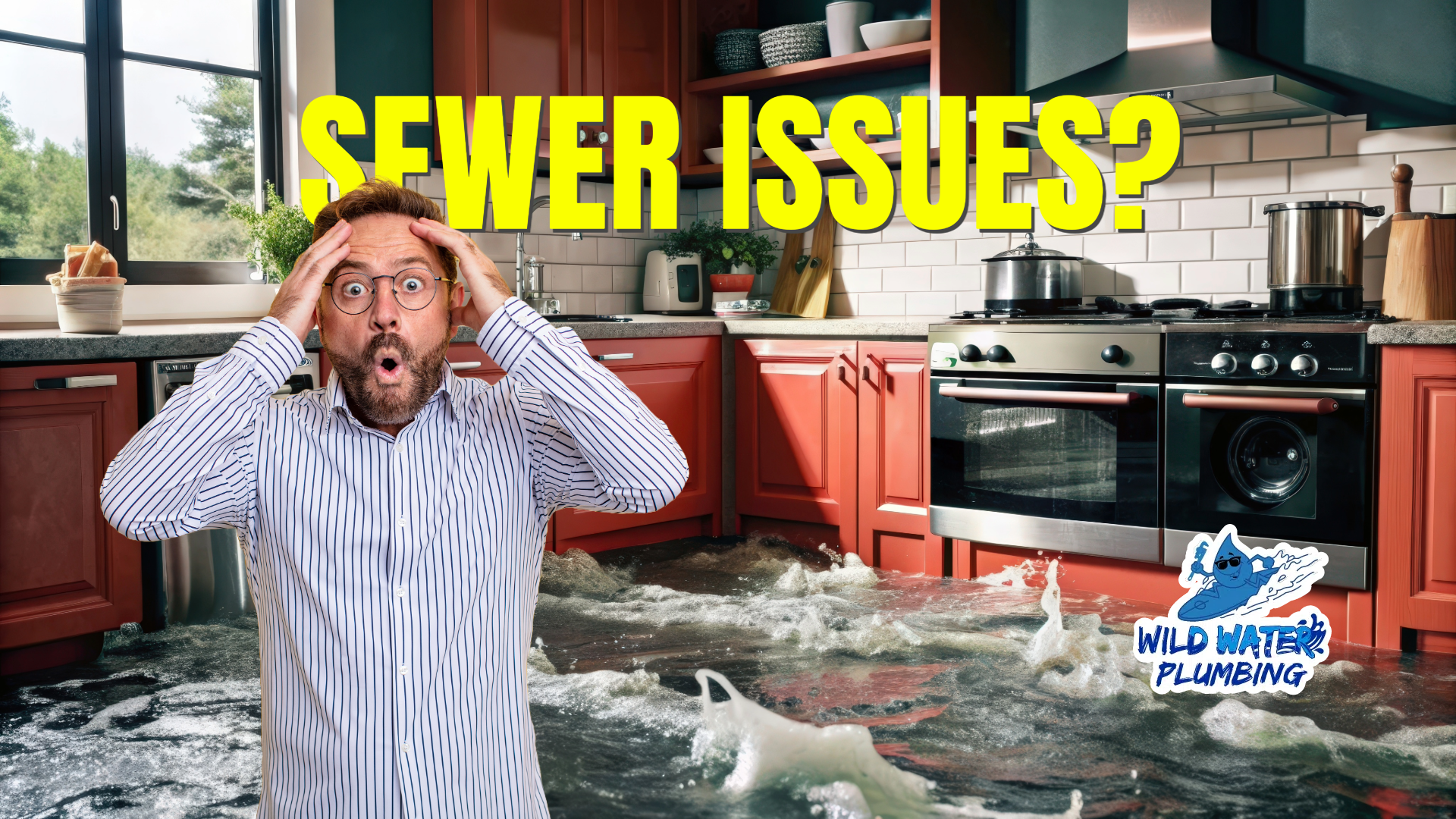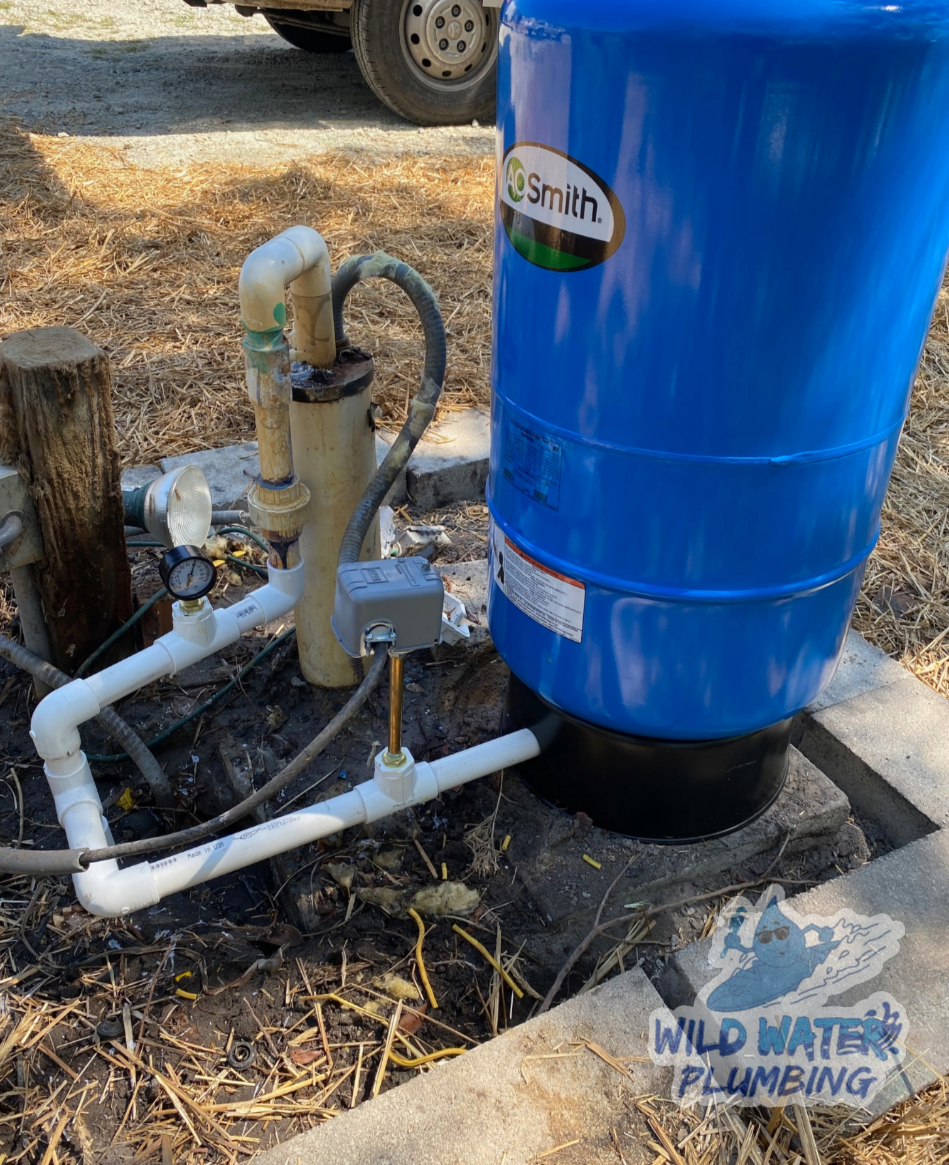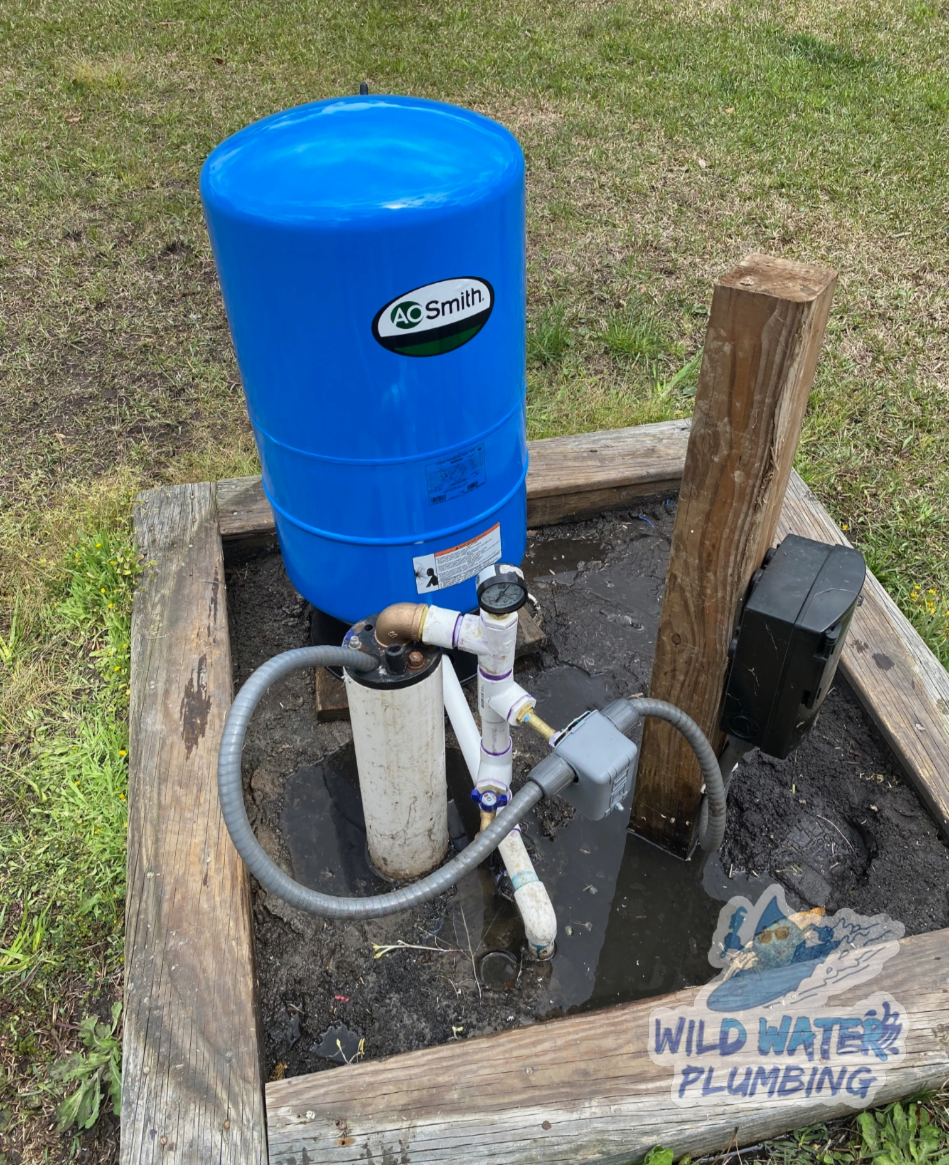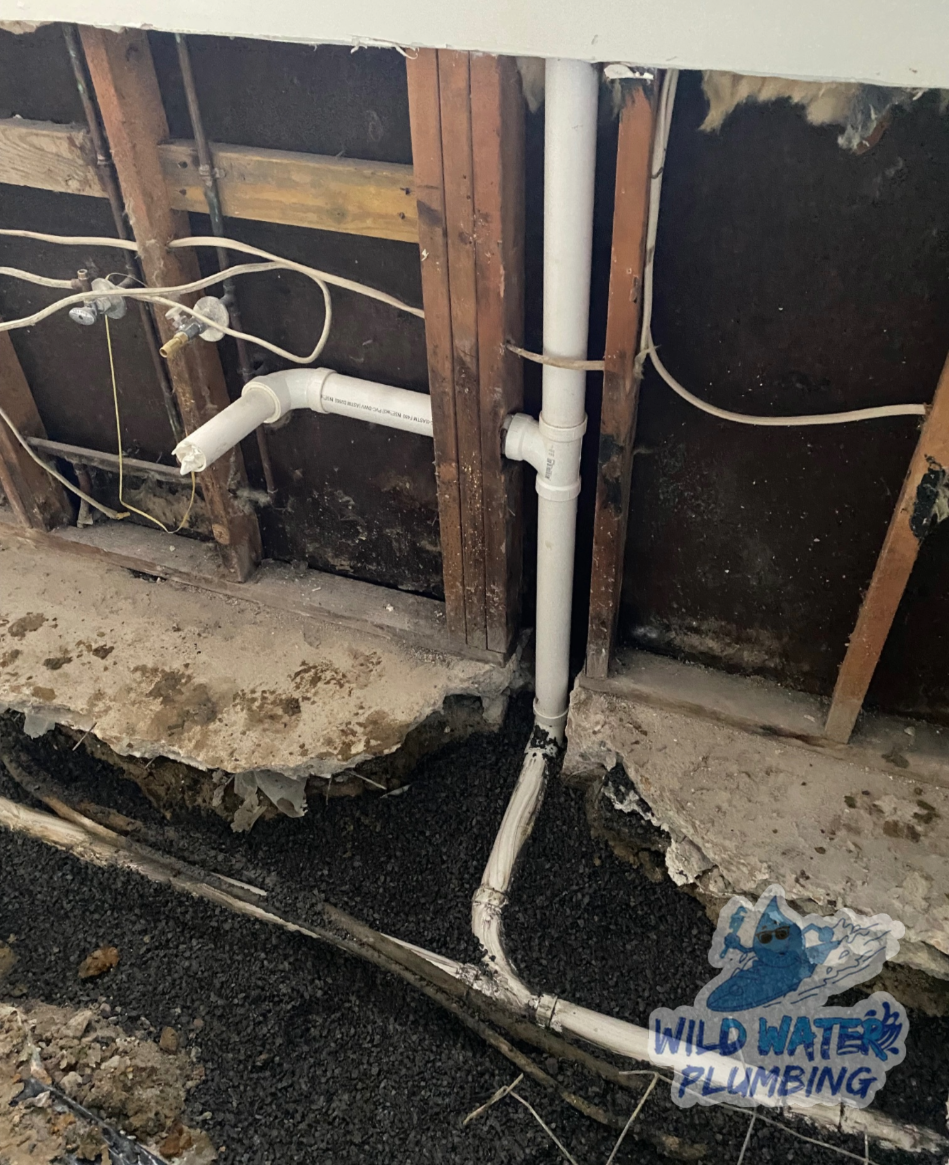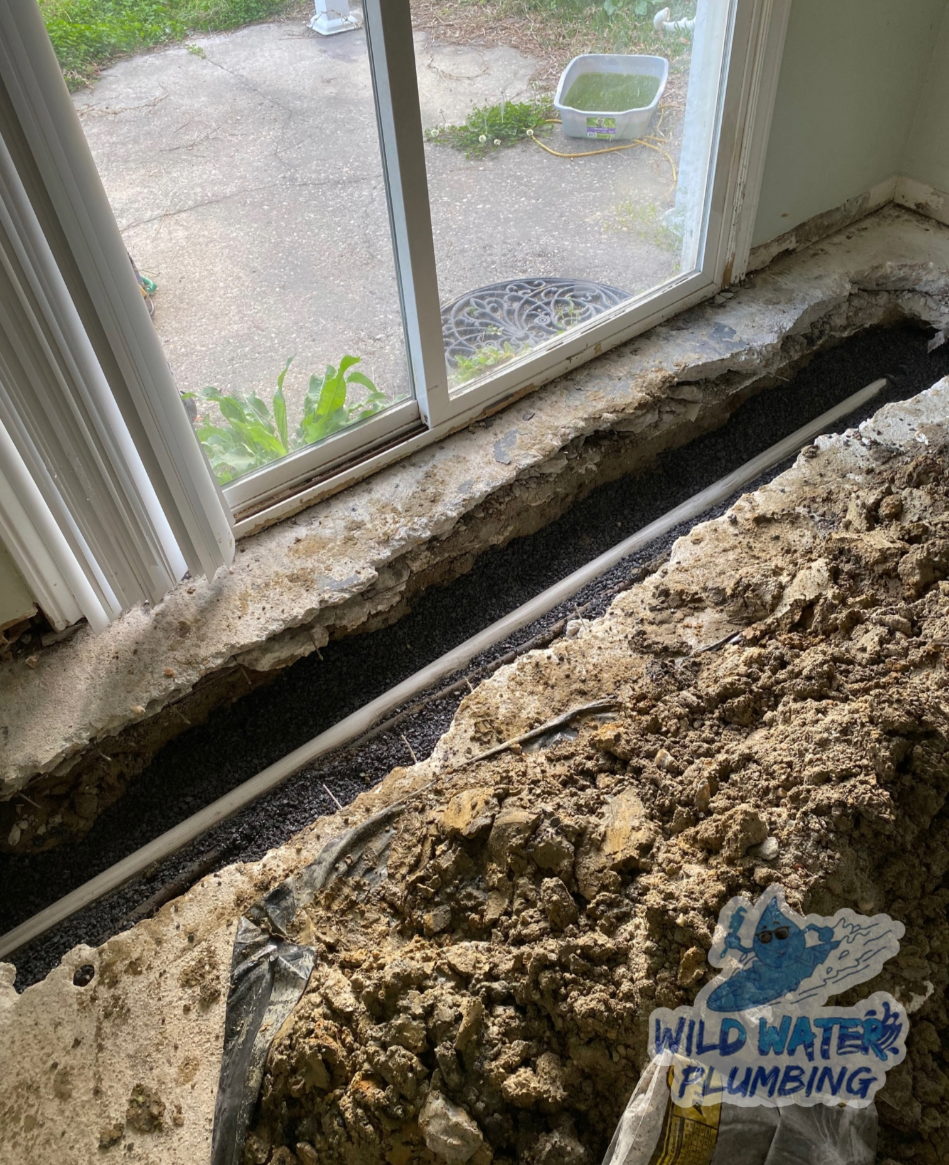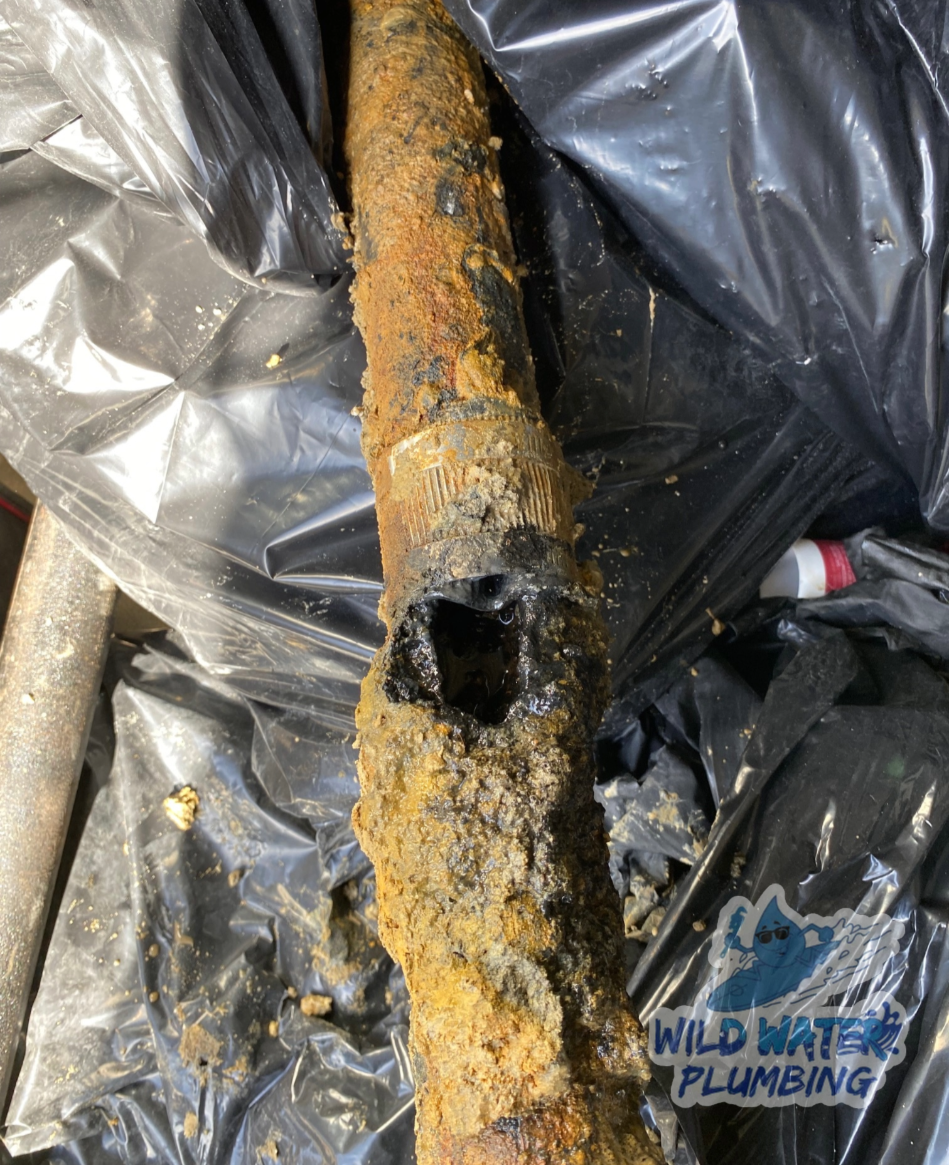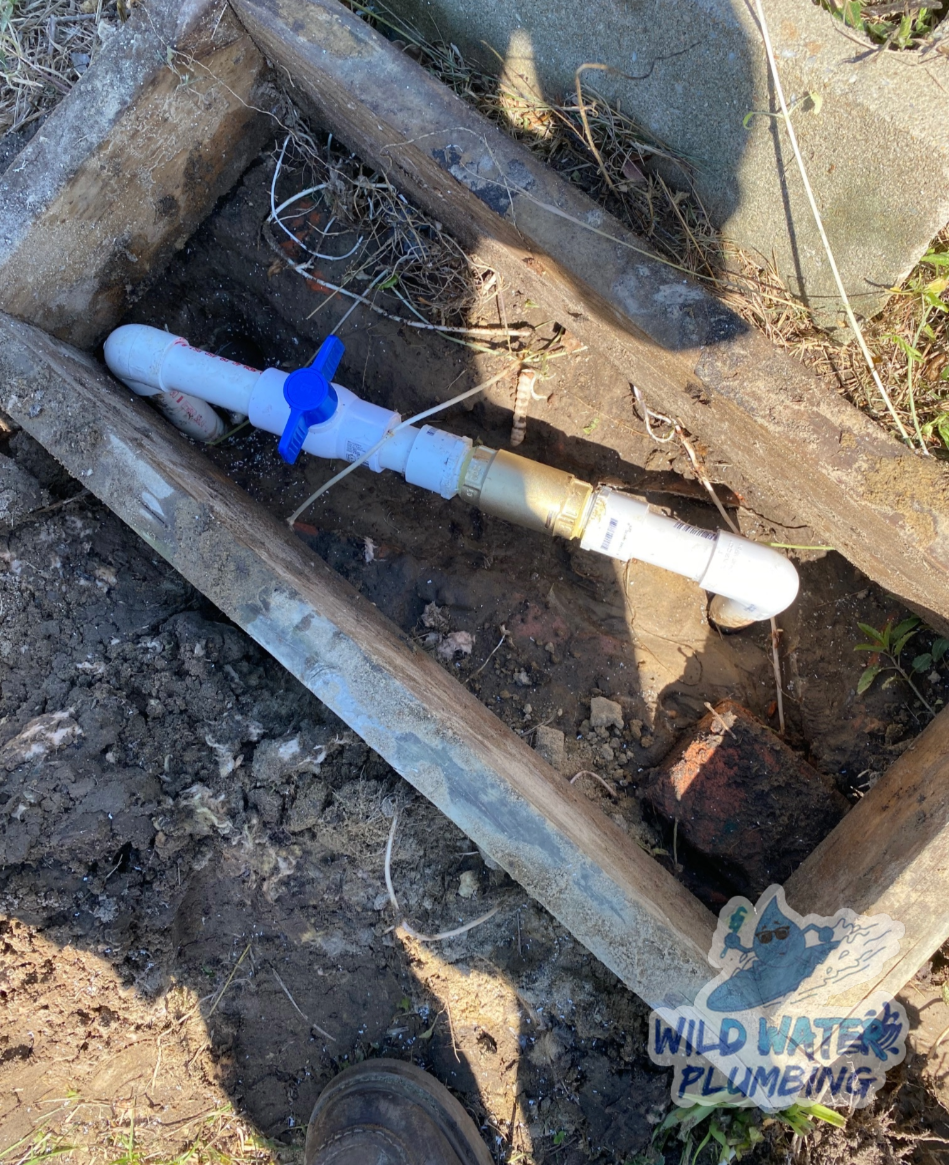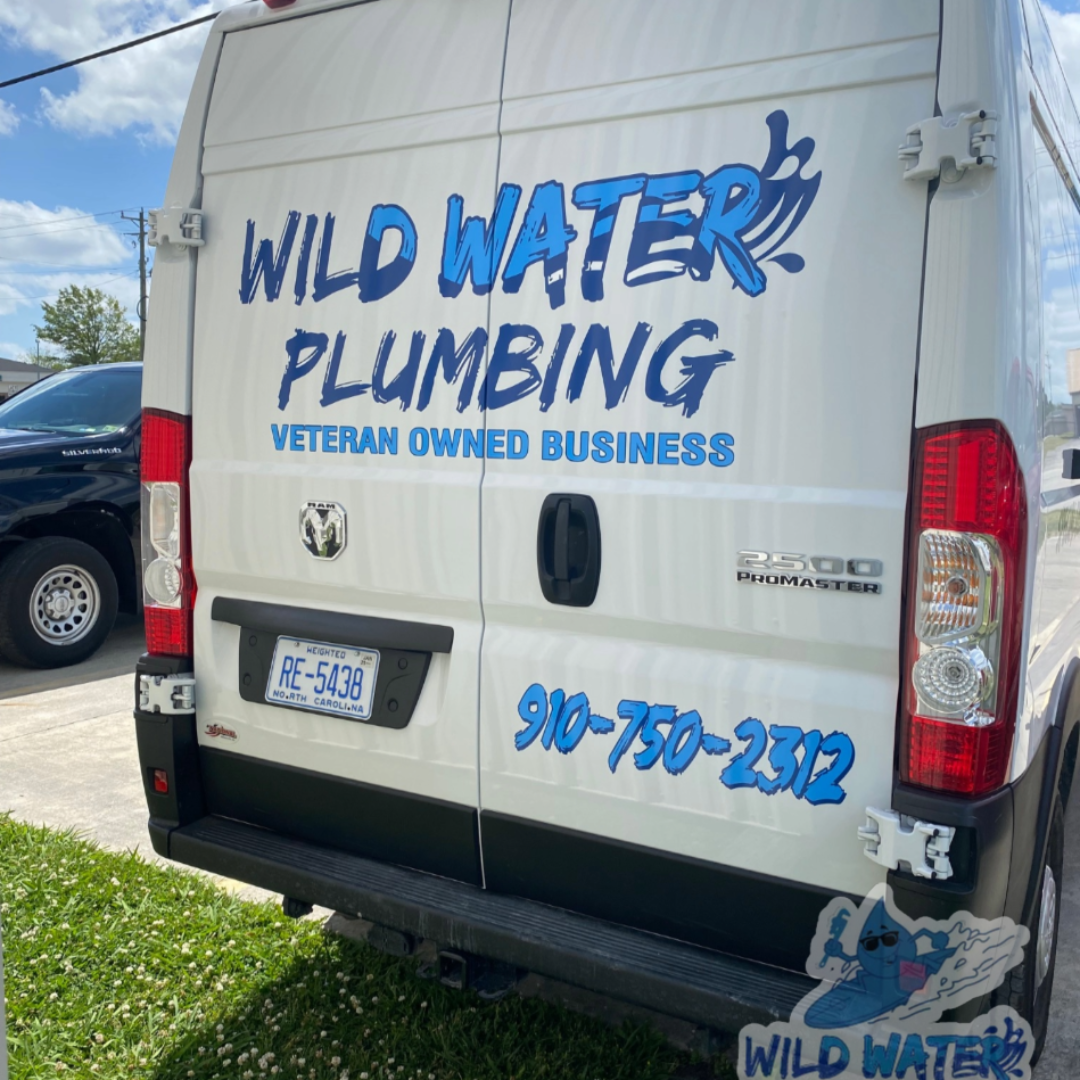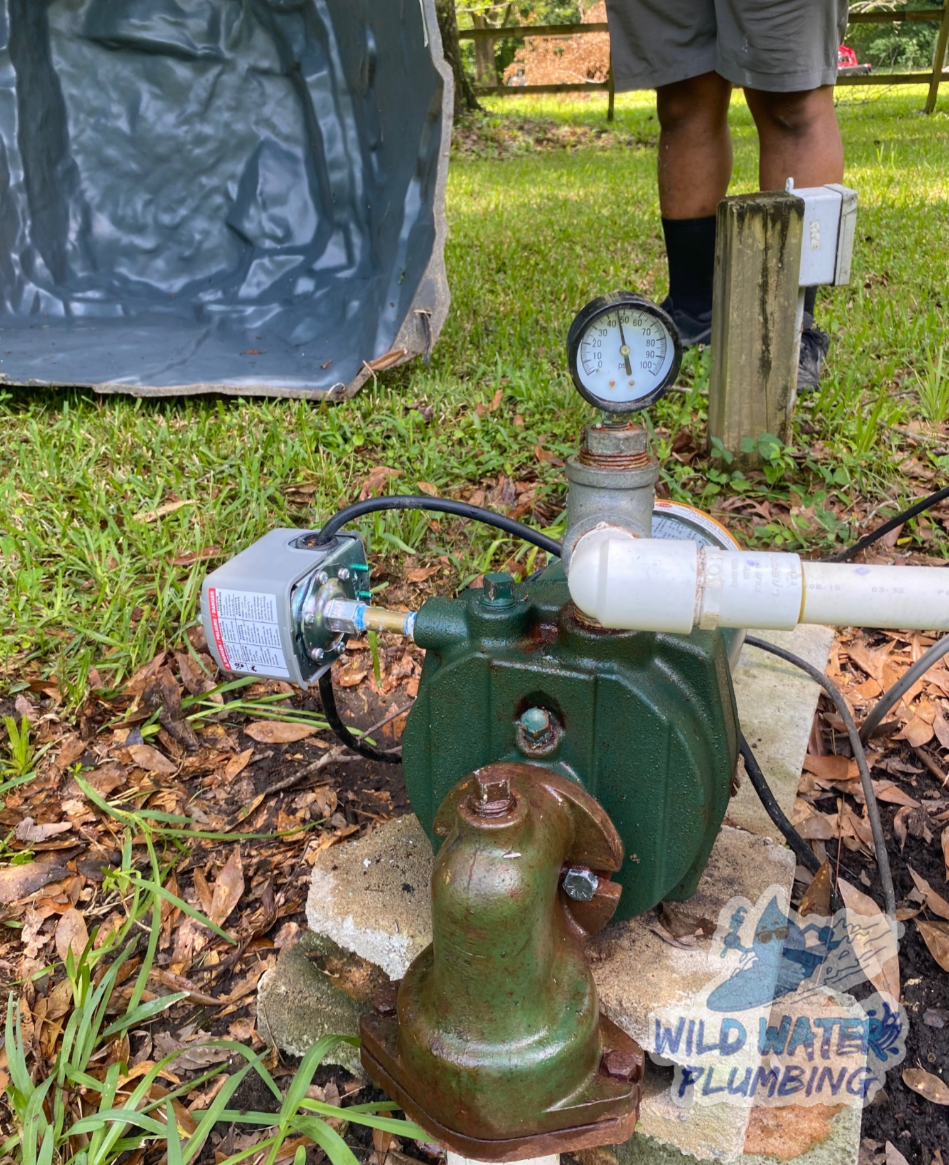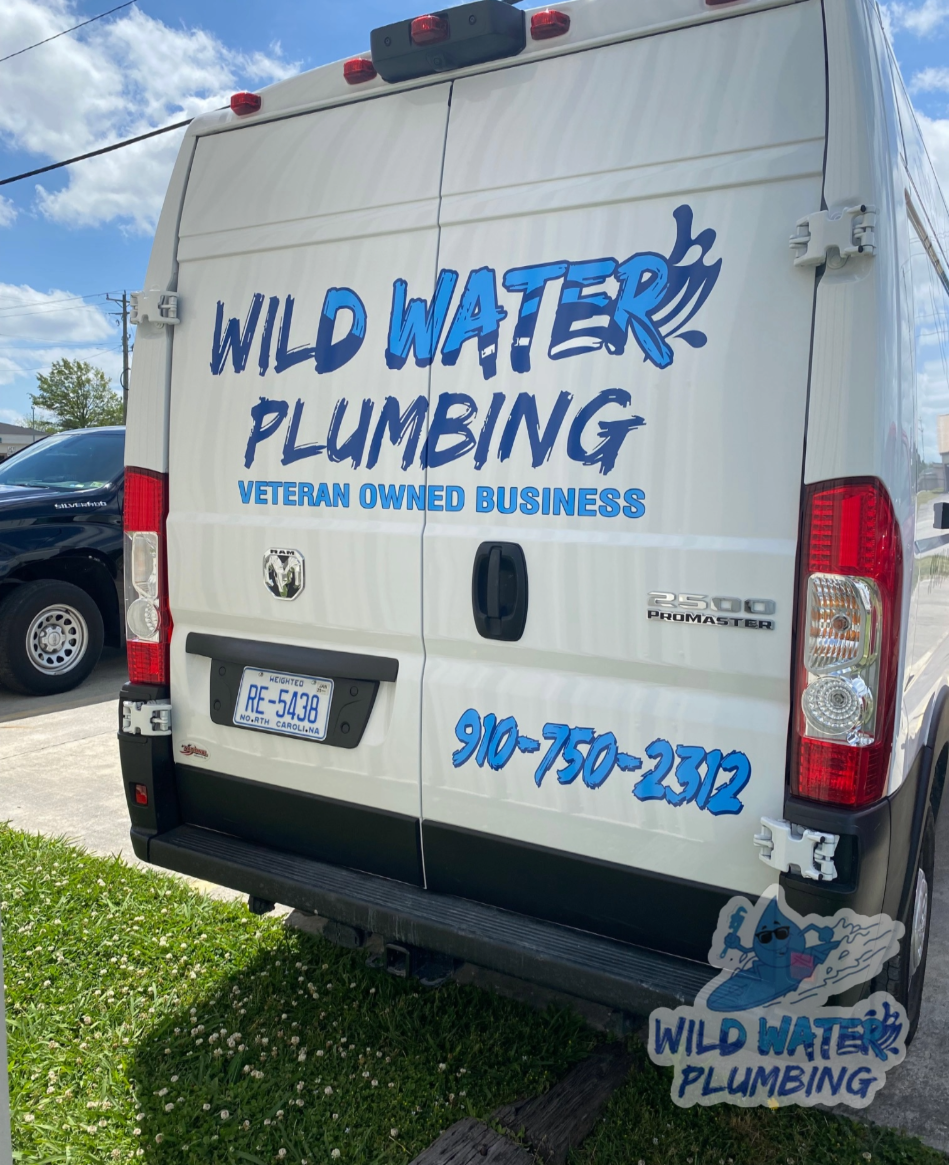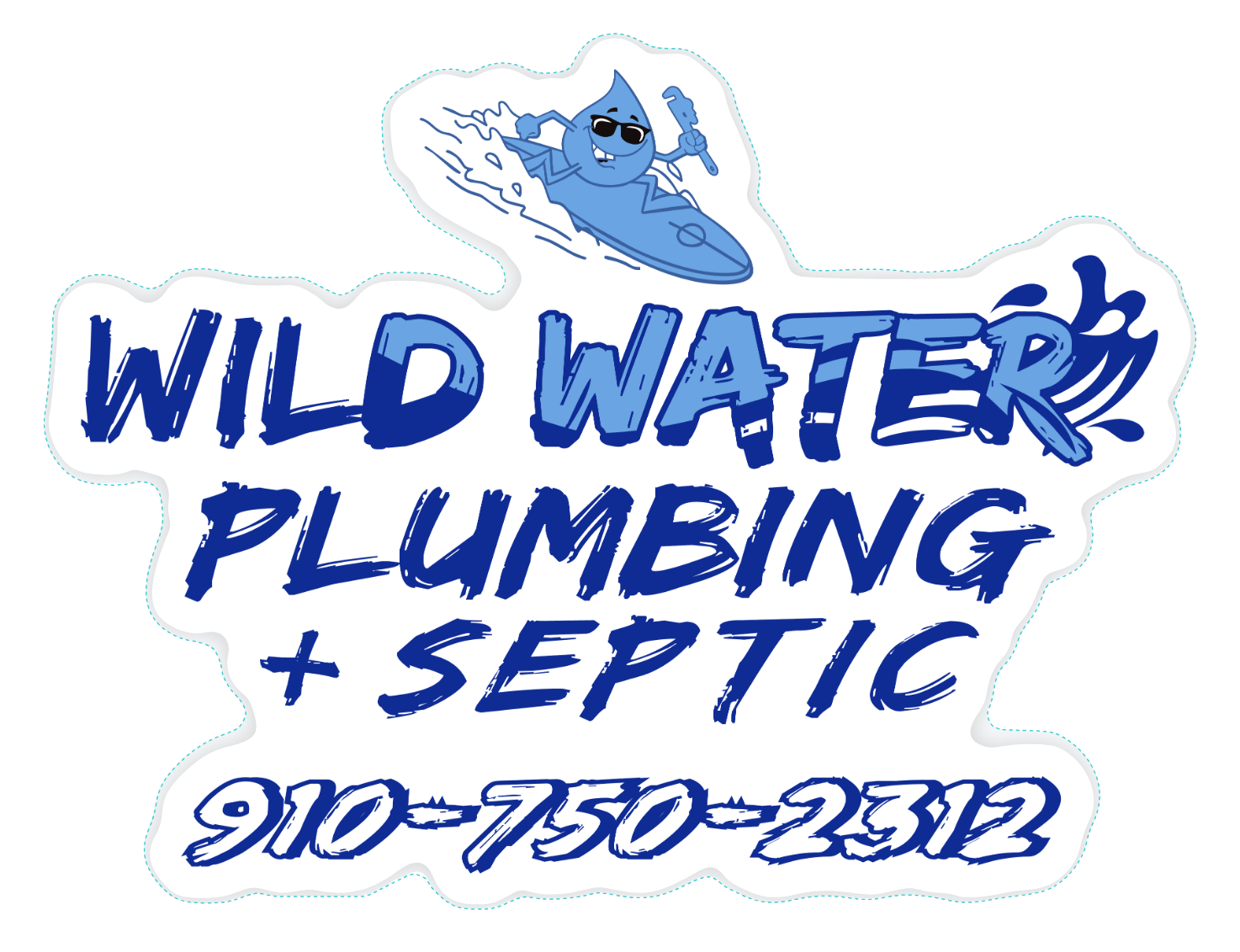Dealing with a sluggish drain or a sewer line that won’t cooperate in Wilmington, NC?
We’re your go-to team for sewer line repair and installation in Wilmington, NC, and we’re here to help!
Why Trust Wild Water Plumbing for Sewer Line Work in Wilmington, NC?
Nobody likes playing with sewer lines in Wilmington, NC, and you don’t have to.
Our plumbers can work on any job, from residential repairs in Wilmington, NC, to entire line replacement.
I’m Justin, owner of Wild Water Plumbing. Here in Wilmington, NC, we specialize in end-to-end sewer line repair and installation.
We use trenchless technology, high-definition camera inspections, and premium materials to deliver durable, hassle-free solutions that protect your home and wallet, all backed by our 100% satisfaction guarantee.
Common Sewer Line Issues We Handle in Wilmington, NC.
- Clogs & Blockages: Got a stubborn clog that keeps coming back? If tree roots are involved, we’ll find the root of the problem in Wilmington, NC, and clear it out for good.
- Leaks & Cracks: Little leaks are enormous pains. We’ll identify cracks or leaks and repair them in Wilmington, NC, before they wreak havoc on your house. With high-definition cameras revealing the problem, our pro team delivers the solution.
- Pipes Damaged or Old: We can replace them with new sewer lines for your Wilmington, NC property.
Sewer Replacement, & Installation Services for Wilmington, NC ResidentsWild Water Plumbing Reviews
Free Estimate for Wilmington, NC, HomeownersDo you have a sewer problem that can't wait in Wilmington, NC?
From Justin Wilder, Owner of Wild Water Plumbing FAQs: Orangeburg Pipes in Older Wilmington Homes
1. What exactly is Orangeburg pipe?
Orangeburg pipe is an old type of sewer pipe made from layers of wood pulp and pitch (a tar-like material). It was cheap, lightweight, and popular in North Carolina homes from the 1940s to the 1970s. Unfortunately, its low durability became a major problem over time.
2. Why was Orangeburg pipe so popular back then?
Honestly, it was affordable and easy to install. Builders loved it because it was lightweight and didn’t require special tools. But as a plumber, I can tell you it was a shortcut that led to big problems later on.
3. How long does Orangeburg pipe last?
In my experience, Orangeburg pipe has a lifespan of about 30 to 50 years. But I’ve seen plenty that started failing after just 20 to 30 years because of its weak, fibrous material.
4. Why does Orangeburg pipe fail?
It breaks down over time due to natural deterioration, root intrusion, soil pressure, moisture, and just the general breakdown of that compressed wood fiber. It’s like a wet cardboard tube in the ground.
5. What are the warning signs of a failing Orangeburg pipe?
You’ll notice frequent drain clogs, slow drains, nasty sewer odors, sewage backups, or even sinkholes and lush patches in your yard where the pipe is leaking underground.
6. Is Orangeburg pipe still used in new homes?
No way. It’s considered obsolete. No reputable builder uses Orangeburg pipe in new construction anymore because it’s so prone to failure.
7. How do I know if my home has Orangeburg pipe?
If your house was built between the 1940s and 1970s, there’s a good chance you have Orangeburg pipe. The best way to know for sure is to schedule a sewer camera inspection with a plumber – like me.
8. Are there specific areas around here with Orangeburg pipe?
Yep. I’ve seen it a lot in older neighborhoods in Wilmington, Carolina Beach, and Wrightsville Beach. It’s pretty common in those areas.
9. Does Orangeburg pipe affect my water quality?
Not directly, but if it collapses or cracks, you could get sewage backups or even contamination. That’s a serious health risk.
10. Can I repair Orangeburg pipe without replacing it?
You can try, but because it’s so brittle, repairs usually don’t last. Replacement is almost always the best long-term fix.
11. What does it cost to replace Orangeburg pipe?
Prices can vary, but typically you’re looking at $3,000 to $10,000 or more, depending on the length and depth of the pipe. I always give upfront pricing so there are no surprises.
12. Can I reline Orangeburg pipe instead of replacing it?
Relining can work temporarily, but because Orangeburg is so weak, lining can actually cause it to collapse. In most cases, it’s better to replace it outright.
13. Does homeowners insurance cover Orangeburg pipe replacement?
That depends on your policy. Most insurance doesn’t cover normal wear and tear or replacement of old pipes.
14. Can I prevent problems with Orangeburg pipe?
Honestly, no. Orangeburg is going to fail eventually because of the way it’s made. Regular inspections can help you catch problems early, though.
15. What should I replace Orangeburg pipe with?
PVC is the most popular replacement because it’s durable, corrosion-resistant, and affordable. ABS is another good option.
16. How long does it take to replace Orangeburg pipe?
Typically, it takes one to three days depending on the length of the pipe and how easy it is to access.
17. How do you replace Orangeburg pipe?
We dig a trench to expose the old pipe, remove it, and replace it with strong PVC or ABS pipe. In some cases, we can use trenchless methods.
18. Are there trenchless options for replacing Orangeburg pipe?
Yes, trenchless methods like pipe bursting or pipe lining can work, but they aren’t always suitable because Orangeburg is so fragile.
19. Can tree roots cause Orangeburg pipe to fail?
Absolutely. Tree roots love Orangeburg because they can easily push through the soft, fibrous material.
20. Should I replace my Orangeburg pipe even if it’s not clogged?
If you know you have Orangeburg, it’s smart to replace it before it fails. Waiting for a collapse usually means a bigger, messier, and more expensive problem.
21. How can I tell if my Orangeburg pipe is collapsing?
You’ll notice frequent backups, slow drainage, and a camera inspection might show the pipe is crushed or oval-shaped instead of round.
22. Can Orangeburg pipe cause foundation damage?
Yes, if it leaks sewage into the soil, it can erode the ground under your home and even damage your foundation.
23. What’s the best replacement for Orangeburg pipe?
PVC is the best choice. It’s tough, long-lasting, and resistant to corrosion and root intrusion.
24. Can Orangeburg pipe cause sinkholes in my yard?
Yes, a broken Orangeburg pipe can wash away soil, creating sinkholes or lush patches of grass above the leak.
25. Are there grants to help replace Orangeburg pipe in North Carolina?
Some local programs might offer help for low-income homeowners, but it varies by county. It’s worth checking with your local utility.
26. Will replacing Orangeburg pipe increase my home’s value?
Absolutely. A new, durable sewer line is a selling point for buyers, and it can prevent costly surprises during a home inspection.
27. How do I know if my home in Onslow County has Orangeburg pipe?
If it was built between the 1940s and 1970s, it’s worth having me inspect it. A camera inspection is the best way to know for sure.
28. Does Carteret County have a lot of homes with Orangeburg pipe?
Yes, I’ve seen plenty of it in older areas like Morehead City, Beaufort, and Atlantic Beach.
29. What happens if I ignore failing Orangeburg pipe?
It’ll eventually collapse, causing frequent clogs, sewage backups, foundation damage, and expensive emergency repairs.
30. Can I sell my home without replacing Orangeburg pipe?
Yes, but most buyers will want a sewer inspection. If issues are found, you’ll probably have to negotiate repairs.
